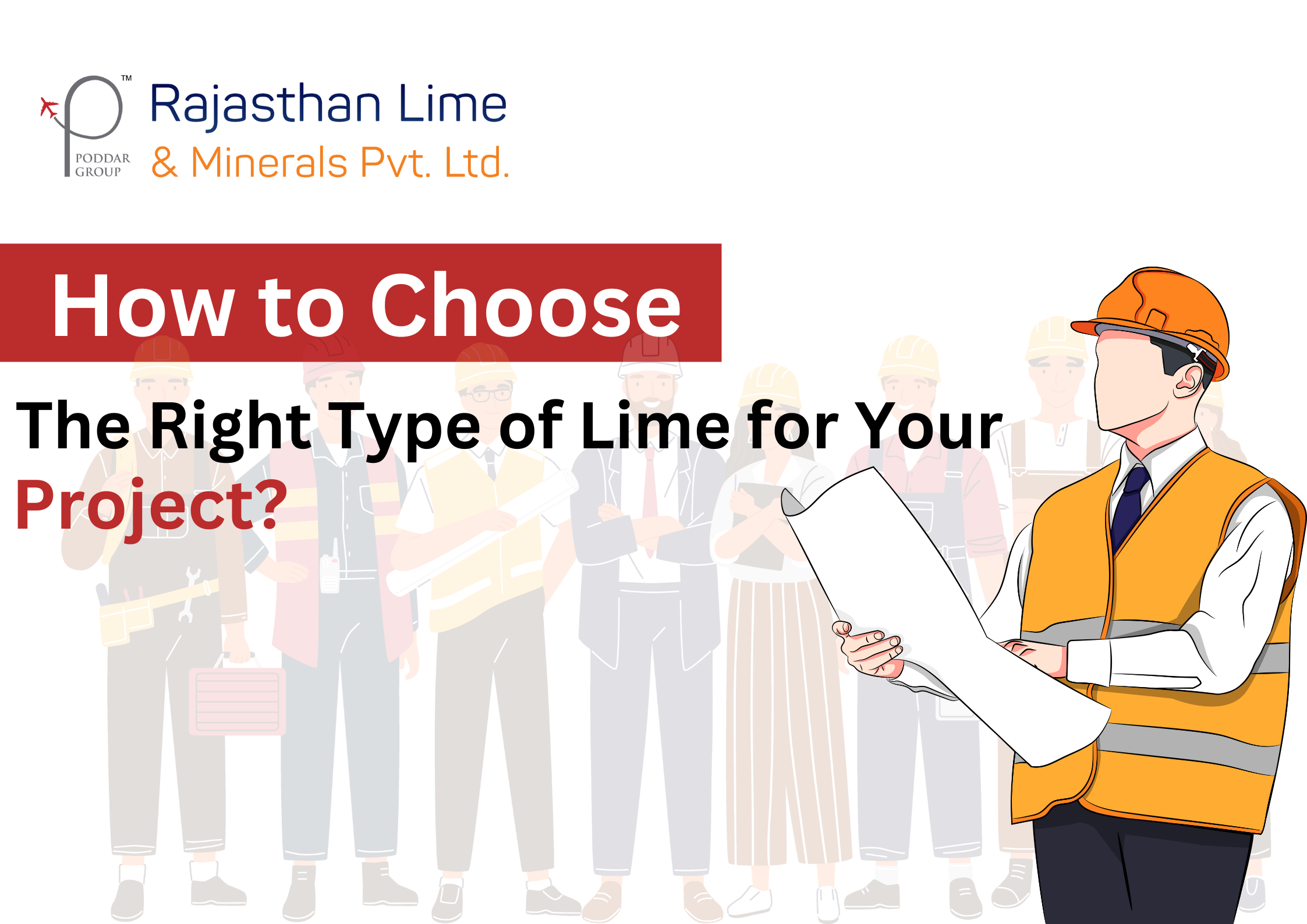Introduction
Did you know lime is one of the most used materials in high-scale construction? Lime is used in construction and multiple industries, treating water, refining sugar, soil stabilization, etc. However, there isn’t one type of lime that is used in all the material applications. Different types of lime are used for various purposes. This blog will comprehensively discuss choosing the proper lime for your project.
Types of Lime
Discussing some popular types used in various settings is essential before understanding what kind of lime is used for what purpose.
- Quicklime (Calcium Oxide): Quicklime burnt lime, or calcined lime, scientifically called Calcium Oxide (CaO), is a versatile chemical compound made from hefty deposits of high-calcium limestone. It is used for acid neutralization, flue gas treatment, flux in the metallurgical industry, sugar refining, etc.
- Hydrated Lime (Calcium Hydroxide): Hydrated lime or slaked lime, chemically referred to as Calcium Hydroxide (Ca(OH)2), is an inorganic compound produced when quicklime is mixed with water. It is used for water treatment in an effluent treatment plant (ETP), soil stabilization, hot mix asphalt, construction, caustic soda, etc.
- Dolomitic Lime (Dolomite): Calcined dolomite or flux dolomite, biologically known as Calcium Magnesium Carbonate (CaMg(CO3)2), is a form of quicklime formed from calcining a natural dolomitic limestone. It contains high levels of magnesium oxide and is a constituent of refractory bricks.
Factors to Consider When Choosing Lime
- Project Type: It’s no surprise that the type of limestone used differs depending on the kind of lime required for the project. What it means is that, for building roads, quicklime is the preferable one because of its strength and stability. In contrast, hydrated lime, for example, is typically used in plastering because of its smooth finish.
- Reactivity: Lime can be a highly reactive element or an element with very low reactivity. This point is closely related to the previous factor. We discussed how the project type is an essential lookout when purchasing lime. Similarly, how much the lime reacts with the elements at the project is also crucial to consider. Quicklime is highly reactive; while used in wastewater treatment, hydrated lime is typically used because of its slower reactivity, which allows for better control in neutralization processes.
- Cost & Availability: Budget is a critical factor when choosing lime. There might be multiple options available when selecting lime. However, some might not be available due to demand, while some might not be affordable because of their high cost. So, if you are working on a tight budget, dolomitic lime is preferable for agricultural applications due to its affordability and usability.
- Environmental Impact: Choosing lime can also be an ecological choice. In some places, using lime might be a more environmentally friendly option. For example, in green building projects, lime-based mortars take the superior spot in the preference list over cement-based alternatives because they are more eco-friendly and recyclable.
Common Choices
It’s only logical that we discuss some common applications and recommendations of the lime that need to be used in some specific projects. Here are some examples.
- Construction: Hydrated Lime. The hydrated lime manufacturing process is preferred for its workability when the construction is specifically concerned with the pastes of Mortar (Masonry).
- Soil Stabilization: Quicklime. Quicklime is known for its rapid reaction quality—accordingly, quicklime steps in as the effective agent when the matter is concerned with improving soil strength.
- Agriculture: Dolomitic Lime. Soil amendment is a serious issue in the agricultural sector. Dolomitic lime, with its ability to balance soil pH and add magnesium, helps the farmers with the concerned matter.
Conclusion
Choosing the appropriate lime can make all the difference in your projects. The type of project, the reactivity of the project, the cost and availability of the project, and the environmental impact that it makes are all crucial factors in choosing a specific lime for a project. This can be confusing. To select the best lime for your project, contact Rajasthan Lime, one of the best lime powder suppliers in India, to understand your needs and supply the best and most appropriate lime.

